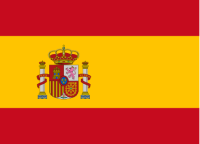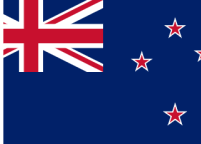1. Introduction
Overview of the Parent Resident Visa
The Parent Resident Visa is designed for parents who wish to join their adult children living in New Zealand as residents. This visa allows parents to live in New Zealand permanently and enjoy the benefits and opportunities of residency.
On average, New Zealand receives approximately 2,500 to 3,000 applications for the Parent Resident Visa each year.
The average processing time for the Parent Resident Visa can range from 12 to 24 months, depending on the completeness of the application and the applicant’s specific circumstances.
Most applicants come from countries with significant New Zealand immigrant populations, such as China, India, and the United Kingdom.
Purpose of the Visa
The main purpose of the Parent Resident Visa is to reunite families, allowing parents to be close to their children, who are already established in New Zealand. This visa not only strengthens family bonds but also provides parents with the opportunity to experience the rich culture and lifestyle of New Zealand.
Who is Eligible to Apply
To be eligible for the Parent Resident Visa, applicants must meet specific criteria, including:
- Relationship: The applicant must be the parent of a child who is a New Zealand citizen or resident.
- Financial: The sponsoring child must meet specific income requirements to ensure they can financially support their parent.
- Health and Character: Applicants must pass health and character assessments to ensure they are fit to reside in New Zealand.
Benefits of the Parent Resident Visa
Rights and Privileges
Parents granted this visa enjoy several rights and privileges, including:
- Permanent Residency: The visa provides the right to live, work, and study in New Zealand indefinitely.
- Healthcare: Access to New Zealand’s public healthcare system offers high-quality medical services.
- Education: The ability to pursue further education or training opportunities within New Zealand.
- Social Services: Eligibility for social security benefits is subject to meeting certain conditions.
Long-term Advantages for the Family
The Parent Resident Visa offers significant long-term benefits for the entire family:
- Family Unity: It fosters closer family ties by allowing parents to be near their children and grandchildren.
- Emotional Support: Parents’ presence can provide emotional and practical support, enhancing the entire family’s well-being.
- Cultural Integration: Parents can immerse themselves in New Zealand’s diverse and inclusive society, contributing to a multicultural environment.
- Economic Stability: With the support of their children, parents can enjoy financial stability and a higher quality of life in New Zealand.
- Approval Rates: Historically, the approval rate for the Parent Resident Visa ranges between 60% to 70%, depending on the applicant’s adherence to the eligibility criteria.
Two-Stage Process
The Parent Resident Visa application process involves two stages:
- Expression of Interest (EOI):
- Applicants first submit an EOI.
- If the EOI is selected and meets the requirements, Immigration New Zealand (INZ) will issue an Invitation To Apply (ITA).
Table 1: Parent Resident Visa applications submitted by submission month
Submission month | Submitted applications |
June 2023 | 239 |
July 2023 | 152 |
August 2023 | 138 |
September 2023 | 215 |
October 2023 | 216 |
November 2023 | 386 |
December 2023 | 552 |
January 2024 | 468 |
February 2024 | 640 |
March 2024 | 310 |
April 2024 | 100 |
May 2024 | 89 |
2. Invitation To Apply (ITA):
- Only individuals who receive an ITA can apply for residency.
- The residence application must be made within 4 months of receiving the ITA.
Table 2: Number of EOIs and applicants selected from the ballot by selection month
Month | Selected | Number of EOI | %ge Selected |
November 2022 | 370 | 600 | 61.7% |
February 2023 | 1,100 | 1,777 | 61.9% |
May 2023 | 670 | 1,094 | 61.2% |
August 2023 | 1,100 | 1,771 | 62.1% |
October 2023 | 1,499 | 2,260 | 66.3% |
November 2023 | 811 | 1,194 | 67.9% |
Visa Allocation
- Pre-October 2022 EOIs: INZ can approve a maximum of 2,000 visas per year for EOIs submitted before the restart of selections was announced on 10 October 2022. These EOIs are in a queue and selected in date order, with the oldest chosen first.
- Post-October 2022 EOIs: A maximum of 500 visas a year can be granted for EOIs submitted on or after 10 October 2022. These EOIs are placed on a ballot and selected randomly. EOIs in the ballot expire 2 years after submission.
- Future Allocation: Once all EOIs submitted before 10 October 2022 have been selected, the full 2,500 visa quota will be available for EOIs in the ballot.
2. Eligibility Criteria
Basic Eligibility Requirements
Age Requirements
- The Parent Resident Visa does not have a specific age requirement; however, applicants must meet all other eligibility criteria.
Relationship Proof with the Sponsoring Child
- Proof of Relationship: Applicants must provide evidence of their relationship with the sponsoring child. This can include:
- Birth certificates
- Adoption papers (if applicable)
- Family photographs
- Written statements from the applicant and sponsor detailing their relationship
Financial Requirements
Income Thresholds for the Sponsor
- Income Requirements: The sponsoring child must meet specific income thresholds to ensure they can financially support their parent(s). As of the latest update, the income requirements are:
- Single Sponsor: A minimum annual income of NZD 98623.20
- Joint Sponsors (if the sponsor is married or in a de facto relationship): A combined annual income of NZD 131,497.
- These thresholds are reviewed and updated periodically, so it is essential to check the latest requirements on the Immigration New Zealand website.
Table 3: Minimum income for 1 income sponsor (all values are in NZD)
Effective date | Median wage | 1 parent | 2 parents | 3 parents | 4 parents |
From 28 Feb2024 | $65,748.80 | $98,623.20 | $131,497.60 | $164,732 | $197,246.40 |
May 2023 to 27 Feb 2024 | $61,692.80 | $92,539.20 | $123,385.60 | $154,232 | $185,078.40 |
January 2022 to April 2023 | $57,740 | $86,611.20 | $115,481.60 | $144,352 | $173,222.40 |
Table 4 : Minimum income for 2 sponsors(all values are in NZD)
Effective date | Median wage | 1 parent | 2 parents | 3 parents | 4 parents |
From 28 February 2024 | $65,748.80 | $131,497.60 | $164,732 | $197,246.40 | $230,120.80 |
May 2023 to 27 February 2024 | $61,692.80 | $123,385.60 | $154,232 | $185,078.40 | $215,924.80 |
January 2022 to April 2023 | $57,740.80 | $115,481.60 | $144,352 | $173,222.40 | $202,092.80 |
Calculating the Minimum Sponsor Income for Parental Sponsorship
The required earnings for a sponsor to support one parent are:
- For an individual sponsor, it must be 1.5 times the current median wage in New Zealand.
- For joint sponsors, it must be two times the current median wage in New Zealand.
For each additional parent, the minimum income needed increases by half of the New Zealand median wage, with a cap of 6 parents.
Acceptable Evidence of Income
- Proof of Income: Sponsors must provide acceptable evidence to meet the income thresholds. This can include:
- Recent pay slips
- Employment contracts
- Tax returns
- Bank statements showing regular salary deposits
- A letter from the employer confirming the sponsor’s employment status and income
Health and Character Requirements
Health Assessments and Necessary Medical Examinations
- Health Requirements: Applicants must undergo a medical examination to meet New Zealand’s health standards. This may include:
- General medical examination
- Chest X-ray
- Blood tests
- The results must be submitted by a panel physician approved by Immigration New Zealand.
Police Certificates and Character Checks
- Character Requirements: Applicants must provide police certificates from every country they have lived in for 12 months or more in the last ten years. These certificates must demonstrate that the applicant has no serious criminal convictions.
- Immigration New Zealand will conduct additional background checks as part of the application process.
3. Sponsorship Requirements
Who Can Sponsor
Eligibility Criteria for the Sponsoring Child
- Eligibility: The sponsoring child must meet the following criteria:
- Be a New Zealand citizen or resident.
- Be at least 18 years old.
- Have been a New Zealand citizen or resident for at least three years
- Meet the income requirements to support their parent(s)
Residency and Citizenship Requirements for the Sponsor
- The sponsor must be either a:
- New Zealand citizen, or
- New Zealand resident who has lived in New Zealand for at least 184 days in each of the two most recent years before the application.
Sponsorship Obligations
Financial Commitments
- Financial Support: The sponsor must agree to provide financial support to the parent(s) for their first 10 years of residence in New Zealand. This includes:
- Accommodation
- Living expenses
- The public health system does not cover healthcare costs.
Duration of Sponsorship Responsibilities
- Duration: The sponsor’s financial obligations last 10 years from when the parent(s) are granted residency. The sponsor must sign a sponsorship form agreeing to these commitments as part of the application process.
By meeting these criteria and obligations, the sponsoring child helps ensure their parent(s) can successfully integrate into New Zealand society and enjoy a secure and fulfilling life as residents. For more detailed Information and the latest updates, visit the Immigration New Zealand website.
4. Documentation
Personal Identification Documents
- Passports: Valid passports for all applicants.
- Birth Certificates: Original or certified copies of birth certificates for the parent(s) and the sponsoring child.
- Marriage Certificates: If applicable, original or certified copies of marriage certificates to prove the marital status of the parents.
Relationship Evidence
- Proof of Relationship: Documentation to prove the parent-child relationship, such as:
- Birth certificates
- Adoption papers, if the sponsoring child is adopted
- Family photographs
- Affidavits or written statements from family members confirming the relationship
Financial Evidence
- Income Statements: Recent pay slips from the sponsoring child.
- Tax Returns: Copies of tax returns to verify the sponsor’s income over the required period.
- Bank Statements: Statements showing regular salary deposits and sufficient funds to support the parent(s).
- Employer Letter: A letter from the sponsor’s employer confirming employment status, job title, and income.
Health and Character Documents
- Medical Certificates: A comprehensive medical examination report completed by an Immigration New Zealand-approved panel physician. This includes:
- General health check-up
- Chest X-ray
- Blood tests
5. Interview and Decision
Preparing for the Visa Interview
Common Questions and How to Answer Them
- Tell us about your relationship with your sponsoring child: Provide a detailed and honest account supported by evidence.
- Why do you want to move to New Zealand?: Discuss your desire to be close to your family and the benefits you seek from living in New Zealand.
- How will you support yourself financially in New Zealand?: Explain the financial support your sponsor will provide and any personal savings or assets you have.
- Do you have any health issues?: Be honest about your health status and ensure you have submitted all necessary medical documentation.
Documents to Bring to the Interview
- Identification: Valid passports and other personal identification documents.
- Relationship Evidence: Original or certified copies of documents proving your relationship with the sponsor.
- Financial Evidence: Updated financial documents such as bank statements and proof of income.
- Health and Character Documents: Copies of your medical examination report and police certificates.
Decision-Making Process
How Decisions are Made
- Evaluation of Documents: Immigration New Zealand will thoroughly review all submitted documents to ensure they meet the eligibility criteria.
- Interview Assessment: The visa interview, if required, will be used to verify Information and assess the applicant’s genuine intention to live in New Zealand.
- Health and Character Checks: Final checks to ensure applicants meet health and character requirements.
Possible Outcomes and What They Mean
- Approval: If the application is approved, the parent(s) will receive a resident visa, allowing them to live, work, and study in New Zealand permanently.
- Additional Information Required: Immigration New Zealand may request further Information or documentation if there are any uncertainties.
Rejection: The application may only be accepted if it meets the requirements. Applicants will receive an explanation for the decision and may have the option to appeal or reapply.
6. Common Challenges and How to Overcome them
Common Mistakes in Applications
Missing or Incomplete Documentation
- Problem: Failing to provide all required documents or submitting incomplete forms is one of the most common mistakes.
- Solution: Use a comprehensive checklist to ensure all documents are included. Double-check that all forms are filled out completely and accurately before submission.
Incorrect Financial Evidence
- Problem: Providing outdated or incorrect financial documents can lead to delays or rejections.
- Solution: Ensure that financial evidence, such as pay slips and bank statements, is current and matches the requirements. Obtain a letter from the sponsor’s employer to verify income.
Inaccurate or Inconsistent Information
- Problem: Inconsistencies in the Information provided can raise red flags and cause delays.
- Solution: Review all documents and Information carefully for accuracy and consistency. Ensure that all family members’ details match across all forms and documents.
Not Meeting Health and Character Requirements
- Problem: Failing to pass health or character checks can lead to rejection.
- Solution: Complete all medical examinations with an approved panel physician and obtain police certificates from all relevant countries. Address any potential issues in advance.
Late Submissions
- Problem: Missing deadlines for submitting applications or additional Information can result in rejection.
- Solution: Track all deadlines and set reminders. To account for potential issues, submit all required documents before the deadline.
Dealing with Rejections
Understanding Why Applications Get Rejected
- Common Reasons for Rejection:
- Incomplete or inaccurate documentation
- Failing to meet financial, health, or character requirements
- Providing inconsistent Information
- Missing submission deadlines
Steps to Take After a Rejection
- Review the Decision: Carefully read the rejection letter to understand the reasons for the decision.
- Seek Professional Advice: Consult an immigration adviser or lawyer to discuss your options and potential next steps.
- Address the Issues: Gather additional documentation or correct any inaccuracies identified in the rejection letter.
Reapply or Appeal: Depending on the nature of the rejection, you may choose to reapply with a more robust application or file an appeal if you believe there was an error in the decision.
7. Case Studies
Case Study 1: Reuniting with Family
- Background: Mr. and Mrs. Lee from China wanted to move to New Zealand with their son, who has lived there for over ten years.
- Challenges: They needed help proving financial stability and providing complete medical records.
- Solution: With the help of an immigration adviser, they gathered all necessary financial documents and completed their medical examinations with an approved panel physician.
- Outcome: Their application was approved within 10 months, and they are now happily residing with their son in Auckland.
Case Study 2: Overcoming Financial Hurdles
- Background: Mrs. Patel from India sought to join her daughter, a successful entrepreneur in Wellington.
- Challenges: Mrs Patel’s daughter initially struggled to meet the income threshold due to fluctuating business earnings.
- Solution: The daughter provided comprehensive financial statements and a letter from her accountant detailing her business’s financial health.
Outcome: Immigration New Zealand approved the application, and Mrs Patel now enjoys a peaceful life with her da
8. Additional Information
Helpful Links
- Official Government Websites:
- Immigration New Zealand: The official site for New Zealand visa information, application forms, and guidelines.
- New Zealand Government: General Information on living in New Zealand, including healthcare, education, and social services.
- Relevant Immigration Forums and Support Groups:
- Expat Forum: A community for expats living in New Zealand to share experiences and advice.
- New Zealand Visa Forum: Discussions on various visa types, application processes, and personal experiences.
Contact Information
For further assistance with your Parent Resident Visa application or any other immigration-related inquiries, you can get in touch with ICL Immigration:- Website: ICL Immigration
- Email: info@immigrationconsultancies.com
- Phone: +64 9 123 4567
- Office Address: 123 Immigration Lane, Auckland, New Zealand















